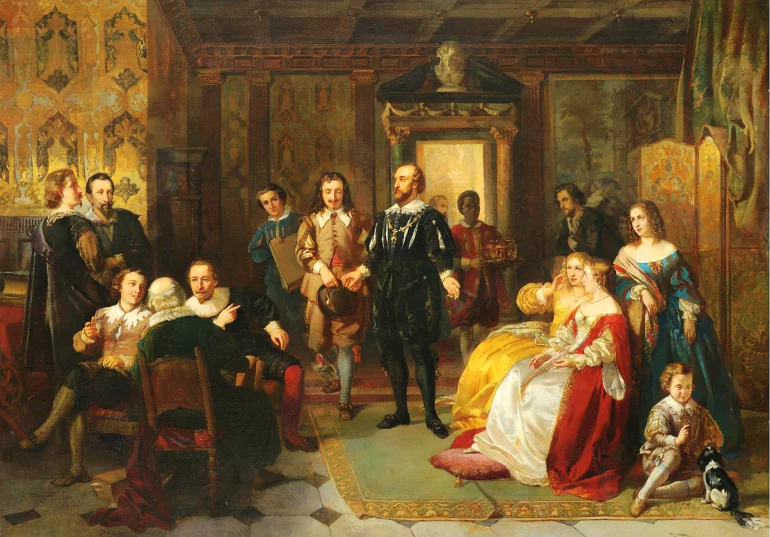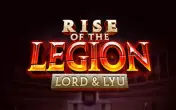
From the roll of ancient dice to the click of modern online slots, the allure of gambling has captivated humanity across millennia. Yet, this pervasive pastime has rarely existed in a vacuum. Instead, it has been locked in a perpetual dance – sometimes a waltz, sometimes a wrestling match – with authorities and governing bodies worldwide. This intricate relationship, marked by periods of tolerance, outright prohibition, and complex regulation, offers a fascinating lens through which to view societal values, economic ambitions, and the enduring human fascination with chance.
Think about it: a clandestine card game in a smoky backroom during gambling prohibition, the grand state-sponsored lotteries that funded historical landmarks, or the intense debates surrounding the regulation of online gambling today. These are just glimpses into a long and often contentious history.
This comprehensive article will delve deep into this power dynamic's historical and global landscape. We will explore the diverse ways in which governments and other authorities have interacted with gambling activities, uncovering the underlying motivations – be it revenue generation, social control, or moral conviction – and examining the profound societal impacts. Join us as we trace the shifting sands of this enduring tug-of-war.
Ancient Civilizations
The seeds of both gambling and its control were sown in the earliest cradles of civilization. While the concept of "authority" might have differed from modern nation-states, organized societal structures and emerging leadership often grappled with the implications of games of chance and the wagers placed upon them.
Here's a look at how some ancient civilizations approached gambling:
Mesopotamia and Ancient Egypt:
- Evidence of early forms of dice games and other chance-based activities.
- Limited direct evidence of formal gambling laws, but societal norms and religious beliefs likely influenced its practice.
- Potential for informal control by local leaders or religious figures.
Ancient Greece and Rome:
- Widespread popularity of dice games (like alea) and betting on various events.
- Emergence of specific laws regulating gambling, often distinguishing between public and private forms.
- Periods of outright bans on gambling alongside the establishment of licensed venues.
- Philosophical debates surrounding the morality and social impact of games of chance.
Early China:
- The invention of keno, a precursor to modern lotteries, often used to fund state projects.
- Imperial decrees and regulations concerning gambling, fluctuating between acceptance as a revenue source and condemnation as a social ill.
- Development of various forms of card games and other wagering activities.
Ancient India:
- References to gambling in ancient texts like the Mahabharata, depicting both its allure and potential for ruin.
- Early forms of state oversight and taxation of gambling activities.
- Moral and ethical considerations regarding the addictive nature of wagering.
As we can see, even in antiquity, the relationship between gambling and governing powers was far from simple. The tension between the enjoyment and potential revenue of these activities and the perceived risks of social disorder and individual downfall was already apparent. This foundational struggle would continue to shape the landscape of gambling regulation for centuries to come.
Gambling in the Middle Ages
The Middle Ages in Europe brought a significant new player to the dynamic between authorities and gambling: the Church. With its pervasive influence on social and moral life, the Christian Church cast a long shadow over games of chance and wagering. Simultaneously, however, secular rulers began to recognize the potential of lotteries as a source of revenue, adding another layer of complexity to the evolving relationship.
Europe: Sin and State Funding:
- The Church's Stance: Generally condemning gambling as a vice, associating it with idleness, greed, and a lack of faith in divine providence. Sermons and religious teachings often warned against the perils of wagering.
- Royal Attitudes: A more pragmatic approach emerged with monarchs recognizing the financial potential of lotteries. Early forms of state-sanctioned lotteries began to appear, used to fund public works, wars, or royal coffers. This marked a significant divergence from the Church's strict stance.
- Illicit Gaming: Despite religious and sometimes secular prohibitions, gambling activities persisted, often taking place in taverns, back alleys, and during festivals, beyond the direct control of authorities. Early forms of casinos or gaming houses, though often operating outside the law, began to emerge.
The Islamic World: Varying Interpretations and Enforcement:
- Religious Prohibitions: Islam generally prohibits gambling (maisir) based on interpretations of the Quran. However, the degree of enforcement varied significantly across different regions, time periods, and Islamic legal traditions.
- Cultural Context: Despite religious restrictions, some forms of games involving chance existed within certain cultural contexts, sometimes with varying degrees of tolerance from local authorities.
- Intellectual Discourse: There were scholarly discussions and interpretations regarding the precise definition of prohibited gambling and its distinctions from legitimate forms of trade or investment.
Asia: Continuity and Shifting Controls:
- China: Continued to see gambling as both a potential revenue source and a cause for social concern. Imperial policies fluctuated between periods of tolerance and strict bans, with the effectiveness of enforcement varying across dynasties and regions.
- India: While religious texts contained moral warnings, gambling remained a prevalent social activity. Rulers sometimes levied taxes on gaming, indicating a degree of acceptance for its revenue-generating potential, even if socially frowned upon in some circles.
- Other Regions: Across Asia, various forms of wagering and games of chance evolved, with local authorities often adopting a mix of tolerance, taxation, and occasional suppression depending on social, economic, and religious factors.
The Middle Ages represent a crucial period in the history of authorities and gambling. The rise of a powerful religious institution added a strong moral dimension to the debate, often clashing with the more pragmatic financial considerations of secular rulers. This dynamic – the tension between moral condemnation and economic opportunity – would continue to shape the regulatory landscape of gambling in the centuries that followed.
The Global Gamble: From Exploration to Early Regulation
The Age of Exploration, spanning roughly from the 15th to the 18th centuries, wasn't just about new trade routes and continents; it was also a period of unprecedented cultural exchange, and with it, the widespread dissemination of gambling practices. As European powers established colonies and trade networks across the globe, they inadvertently (or sometimes deliberately) introduced their own games of chance and wagering habits, creating new challenges and opportunities for various forms of authority.
European Colonization: Spreading the Seeds of Chance
- Americas: European settlers brought games like cards, dice, and various forms of betting. In burgeoning towns and frontier settlements, gambling quickly became a popular pastime, often intertwining with social gatherings and early commerce.
- Africa and Asia: While many regions already had indigenous gambling activities, European influence introduced new games and practices, sometimes leading to a blend of local and foreign wagering traditions. Colonial authorities often found themselves grappling with how to control or exploit these new forms of entertainment.
- The Caribbean and Early Port Cities: These became melting pots of cultures and, consequently, of gambling practices. Sailors, merchants, and adventurers engaged in high-stakes games, presenting a unique challenge for nascent regulatory frameworks.
The Rise of Saloons, Taverns, and Public Gaming Houses
- North America: Particularly in the American West, saloons became synonymous with gambling. These establishments, often operating with minimal oversight, were hubs of card games (like poker and faro), dice games, and other forms of wagering.
- A Test of Authority: The often lawless or loosely governed nature of these frontier areas meant that authorities – whether local sheriffs, territorial governments, or emerging municipal councils – faced an uphill battle in attempting to control or tax gambling. The pursuit of wealth, often through high-stakes gambling, was a driving force in many of these developing regions.
- Europe: While not as wild as the American frontier, European cities also saw the rise of more formalized gaming houses and early casinos. Some were private and illicit, others operated with tacit, or even explicit, state approval, often catering to the aristocracy or burgeoning merchant class.
Early Lotteries and State Funding: A Double-Edged Sword
Lotteries gained significant traction as a primary tool for financing public projects. Governments and civic bodies across Europe and the American colonies used lottery proceeds to:
- Fund wars and military expeditions.
- Construct roads, bridges, and schools.
- Build hospitals and other public institutions.
- Even establish universities (e.g., Harvard, Yale, and Princeton relied on lottery funds).
While viewed as a legitimate means of raising funds without direct taxation, lotteries were not without their critics. Concerns about fraud, the exploitation of the poor, and the moral implications of gambling frequently led to calls for tighter regulation or outright prohibition.
The very nature of lotteries as a state-sponsored enterprise meant that authorities had a direct hand in their organization, from drawing numbers to distributing prizes. This also meant they were directly accountable for their success and any associated controversies.
The Age of Exploration profoundly transformed the global landscape of gambling. It transitioned from primarily localized practices to a global phenomenon, necessitating new approaches from various authorities. The growing scale and societal impact of gambling laid the groundwork for the more formalized regulatory frameworks and moral debates that would define its relationship with governance in the centuries to come.
The Pendulum Swings: From Prohibition to Regulation in the Modern Age of Gambling
The 19th and 20th centuries witnessed dramatic shifts in how authorities around the world approached gambling. Fueled by social reform movements, the rise of organized crime, and eventually the pragmatic recognition of potential revenue, the pendulum swung from periods of widespread prohibition to the development of complex regulation that continues to evolve today.
The Temperance Movement and Anti-Gambling Sentiments:
- Moral Crusades: The 19th century saw the rise of strong moral and social reform movements, often intertwined with the temperance movement, that viewed gambling as a destructive vice leading to poverty, crime, and family breakdown.
- Calls for Prohibition: These movements actively campaigned for the legal prohibition of gambling in various forms, gaining significant political traction in many parts of the world.
- Early Successes in Prohibition: This era saw the implementation of gambling bans at local, regional, and even national levels, reflecting a strong societal desire to curb its perceived negative impacts.
The Rise of Organized Crime:
- The Vacuum of Prohibition: Just as with alcohol prohibition, the banning of gambling often created a lucrative black market, filled by organized criminal enterprises.
- Illegal Gambling Networks: Underground casinos, illegal bookmaking operations, and other forms of illicit wagering flourished, often accompanied by violence and corruption, posing a significant challenge to law enforcement authorities.
- The Paradox of Prohibition: The very laws intended to eliminate gambling inadvertently empowered criminal organizations, highlighting the difficulties of enforcing complete bans and the unintended consequences for governing powers.
The Gradual Shift Towards Regulation and Taxation:
- Recognition of Enforcement Challenges: Authorities increasingly recognized the difficulty and cost of completely eradicating gambling. The persistence of illegal operations underscored the limitations of outright prohibition.
- The Lure of Revenue: The potential for significant tax revenue from a legalized and regulated gambling industry became increasingly attractive to governments facing financial pressures.
- Controlled Legalization: This led to a gradual shift towards legalizing and regulating certain forms of gambling, such as lotteries and, later, casinos, under strict government oversight and taxation frameworks.
The Development of Casino Resorts:
- From Backrooms to Grand Establishments: The image of casinos evolved from clandestine operations to large-scale entertainment complexes, often seen as drivers of tourism and economic development.
- Government Oversight and Licensing: Authorities played a crucial role in establishing licensing systems and regulatory bodies to control the operation of casinos, setting rules for games, ensuring fairness, and collecting taxes.
- Las Vegas and Monte Carlo: These locations became iconic examples of government-sanctioned gambling hubs, demonstrating the potential for economic prosperity alongside the inherent challenges of regulation.
The Emergence of State-Run Lotteries as a Major Revenue Source:
- Widespread Adoption: State-run lotteries became increasingly popular and widespread, offering a seemingly less controversial form of gambling that directly benefited public funds.
- Government Control and Marketing: Authorities actively managed and marketed these lotteries, often earmarking proceeds for specific public services like education or infrastructure.
- Debates on Regressivity: Despite their popularity, state lotteries also faced criticism regarding their potential to disproportionately impact lower-income individuals.
The Dawn of Online Gambling:
- A New Frontier: The advent of the internet created a new and complex challenge for gambling authorities. Online casinos and betting sites transcended geographical boundaries, making traditional regulatory models less effective.
- Challenges in Regulation and Enforcement: Governments worldwide grappled with how to regulate and tax online gambling, address issues of consumer protection, and prevent underage access.
- Ongoing Evolution: The regulation of online gambling remains a dynamic and often contentious issue, with varying approaches adopted by different nations and jurisdictions.
The 19th and 20th centuries represent a pivotal era in the history of authorities and gambling. The lessons learned from the failures of widespread prohibition and the growing recognition of economic potential led to the development of the complex regulatory frameworks that shape the gambling industry in the modern world. The emergence of online gambling added a new layer of complexity to this ongoing dynamic.
| Name | Soft | Return to player | ||
|
|
99.78% | |||
|
|
99.71% | |||
|
|
99.7% | |||
|
|
99.69% | |||
|
|
99.65% | |||
|
|
99.6% | |||
|
|
99.59% | |||
|
|
99.54% | |||
|
|
99.54% | |||
|
|
99.54% |
A Global Mosaic: Diverse Approaches to Gambling Regulation Worldwide
The history of authorities and gambling has culminated in a fascinatingly diverse global landscape. Nations around the world have adopted a wide spectrum of approaches to regulating or prohibiting wagering, reflecting their unique cultural values, economic priorities, and historical experiences. Examining these different models provides valuable insight into the ongoing debate surrounding the role of government in this complex industry.
North America (USA & Canada): A Patchwork of Laws:
United States
A complex system with federal laws often deferring to state authority. Individual states have varying degrees of gambling legalization, from comprehensive casino industries to limited lottery offerings or outright bans. The rise of tribal gaming on sovereign Native American lands adds another layer of complexity. The regulation of online gambling continues to evolve at the state level, with significant variations.
Canada
A more centralized system where provinces have significant control over gambling. Provincial governments often operate or heavily regulate lotteries, casinos, and online platforms. There's generally a more unified approach compared to the US, with a strong emphasis on responsible gambling initiatives.
Europe: From State Monopolies to Liberal Licensing:
State Monopolies: Some European countries maintain strong state control over certain forms of gambling, often justifying this through arguments of social welfare and channeling profits to public funds. Examples include some national lotteries and tightly controlled casino sectors.
Liberal Licensing Regimes: Other European nations have adopted more open and competitive markets, issuing licenses to private operators for various forms of online and land-based gambling. These regimes often focus on consumer protection, anti-money laundering measures, and taxation. The European Union's influence has also played a role in shaping cross-border gambling regulations.
Asia: The Rise of Mega-Hubs and Cultural Nuances:
Macau
A Special Administrative Region of China that has become the world's largest casino hub. The government tightly regulates the industry, which is a crucial pillar of its economy. Strict rules are in place, but the sheer scale of the operations is unique.
Initially resistant to casino gambling, Singapore has strategically developed integrated resorts with casinos as a way to boost tourism and economic growth, with stringent regulations and social safeguards in place.
Japan
After a long history of limited legal gambling, Japan has recently opened its doors to integrated resorts with casinos, driven by economic considerations but with significant public debate and careful regulatory frameworks.
South Korea
Has a unique landscape with legal gambling largely restricted to foreigners in designated casinos, while Koreans primarily engage in activities like state-run lotteries, horse racing, and boat racing, all under strict government control. Cultural attitudes towards wagering play a significant role in these regulations.
Australia: High Participation and Strong Regulation:
- High Rates of Gambling: Australia has one of the highest per capita gambling rates globally.
- Comprehensive Regulatory Framework: Correspondingly, it has a well-established and relatively comprehensive regulatory framework at both the federal and state/territory levels, covering everything from poker machines to online betting, with a strong focus on responsible gambling and harm minimization.
Africa and South America: Emerging Markets and Regulatory Challenges:
- Developing Gambling Industries: Many countries in Africa and South America are witnessing the growth of their gambling industries, often seen as potential sources of revenue and employment.
- Evolving Regulatory Landscapes: The regulatory frameworks in these regions are often still developing and can face challenges related to enforcement, corruption, and ensuring responsible gambling practices. There is a wide variation in the level of government oversight and the types of gambling permitted.
This global snapshot reveals that there is no one-size-fits-all approach to the regulation of gambling. Each nation's policies are shaped by a complex interplay of historical context, cultural attitudes, economic needs, and social concerns. The ongoing evolution of technology, particularly the rise of online gambling, continues to present new challenges and necessitate further adaptation of these diverse regulatory models.
| Casino | Withdrawal methods | Accepted currencies | |
|
+5
|
$, €, ₽, M, Br, R$, Ft, Rs., KZT, C$, kr, zł, L, UZS, ₴, ¥, лв, YTL, ₩ | ||
|
+3
|
€, ₽, R$, zł, kr | ||
|
+6
|
$, €, ₽, ₴ | ||
|
+3
|
$, €, ₽, KZT | ||
|
+3
|
$, €, ₽, R$, Rs., C$, zł |
Key Themes and Motivations Behind Gambling Regulation
As we trace the long and winding history of authorities and gambling, several recurring themes and underlying motivations emerge, providing a framework for understanding the diverse approaches we've observed worldwide. These fundamental drivers often clash and coalesce, shaping the ever-evolving landscape of gambling regulation.
Revenue Generation: The Enduring Allure of Tax Windfalls:
A Consistent Motivator: Throughout history, from ancient lotteries funding empires to modern casino taxes supporting state budgets, the potential for gambling to generate significant revenue has been a powerful incentive for governments to legalize and regulate it.
Balancing Act: Authorities often weigh the ethical concerns surrounding gambling against the potential economic benefits, seeking a balance that maximizes revenue while mitigating social costs.
Dedicated Funds: Revenue from gambling is often earmarked for specific public services, such as education, infrastructure, or social programs, further solidifying its role in state finances.
Social Control: Managing Vice and Maintaining Order:
- Paternalistic Approach: Historically, authorities have often sought to control gambling due to concerns about its potential for social harm, including addiction, crime, and the exploitation of vulnerable individuals.
- Prohibition as a Tool: Outright bans on gambling have been implemented with the aim of eradicating these perceived negative consequences, though, as history shows, this often leads to illicit activities.
- Regulation as a Form of Control: Modern regulatory frameworks often incorporate measures aimed at responsible gambling, such as age restrictions, limits on betting, and resources for problem gamblers, reflecting a continued desire for social control.
Economic Development: The Promise of Tourism and Jobs:
- Attracting Investment: The legalization of casinos and other gambling ventures can attract significant investment, leading to the development of tourism infrastructure and the creation of jobs.
- Regional Development: Authorities sometimes strategically locate gambling facilities in specific regions to stimulate economic growth and revitalize local economies.
- Competitive Landscape: Nations and regions often compete to attract gambling tourism, highlighting its potential as an economic driver.
Moral and Ethical Considerations: The Influence of Values and Beliefs:
- Religious Perspectives: As seen in the Middle Ages, religious beliefs have often strongly influenced societal attitudes towards gambling and the stance taken by authorities.
- Shifting Social Norms: Moral and ethical views on wagering can evolve over time, leading to changes in legislation and public acceptance.
- The Debate on "Sin Industries": Gambling is often categorized alongside other "sin industries," leading to ongoing debates about the appropriate level of government involvement.
The Influence of Lobbying and Special Interests: Shaping Policy:
- Industry Advocacy: The gambling industry has become a powerful economic force, and its lobbying efforts can significantly influence policy decisions regarding regulation and taxation.
- Balancing Interests: Authorities often navigate competing interests from the gambling industry, advocacy groups for responsible gambling, and the general public.
- Campaign Contributions and Political Influence: The financial resources of the gambling industry can sometimes play a role in political campaigns and legislative processes.
The Tension Between Individual Liberty and Public Welfare:
- Personal Choice vs. Societal Harm: The debate over gambling often boils down to the tension between individuals' right to engage in leisure activities and the state's responsibility to protect its citizens from potential harm.
- Finding the Right Balance: Authorities continuously grapple with finding a regulatory balance that respects individual freedoms while safeguarding public welfare and mitigating the negative consequences of excessive gambling.
The interplay of these factors ensures that the relationship between authorities and gambling will remain a dynamic and evolving one.
| Casino | Bonuses | Editors rating | |||
| 100% to 1000 € x35 | Play | ||||
| 100% to 500 $ x40 | Play | ||||
| 100% to 100 $ x35 | Play | ||||
| 100% to 500 $ x40 | Play | ||||
| 100% to 500 $ x40 | Play |
The Future of Authorities and Gambling
The relationship between authorities and gambling is far from static. As technology continues to advance and societal norms evolve, the challenges and opportunities facing governments in regulating this ever-present human activity will only intensify. Here's a look at some potential future trends and key areas of focus:
The Continued Evolution of Online Gambling Regulation:
- Cross-Border Enforcement Challenges: The internet's inherent lack of physical boundaries will continue to pose significant challenges for national authorities seeking to regulate online gambling. International cooperation and agreements may become increasingly necessary.
- Technological Solutions for Regulation: Expect to see greater reliance on technological solutions to address issues like age verification, player identification, and the prevention of illegal activities on online gambling platforms.
- Harm Minimization in the Digital Realm: Developing effective tools and strategies to promote responsible online gambling and identify and assist at-risk individuals will be a crucial focus for regulators.
The Impact of Emerging Technologies:
- Virtual Reality (VR) and Augmented Reality (AR) Gambling: These immersive technologies could create entirely new forms of gambling experiences, requiring authorities to consider novel regulatory frameworks to address potential risks and ethical considerations.
- Esports Betting and Skill-Based Wagering: The growing popularity of esports and other forms of skill-based competitions is blurring the lines between traditional sports betting and gambling, necessitating clear definitions and regulations.
- Blockchain and Cryptocurrency in Gambling: The potential for blockchain technology to offer greater transparency and security in gambling transactions, as well as the use of cryptocurrencies for wagering, will require careful consideration by regulators regarding anti-money laundering and consumer protection.
The Growing Emphasis on Responsible Gambling and Harm Reduction:
- Data-Driven Approaches: Authorities are likely to increasingly leverage data analytics to better understand gambling behavior, identify risk factors, and develop more targeted and effective responsible gambling initiatives.
- Collaboration with Industry and Research: Greater collaboration between governments, the gambling industry, and academic researchers will be essential for developing evidence-based strategies for harm minimization.
- Public Awareness and Education Campaigns: Expect to see continued and potentially expanded efforts to educate the public about the risks associated with excessive gambling and to promote responsible play.
Potential Future Trends in Regulation and Taxation:
- Harmonization of Regulations: In some regions, there may be a move towards greater harmonization of gambling regulations across different jurisdictions to simplify compliance for operators and enhance consumer protection.
- Dynamic Tax Models: Authorities may explore more dynamic tax models that can adapt to changes in the gambling market and ensure a fair return to the public purse.
- The Role of Artificial Intelligence (AI) in Regulation: AI could potentially be used to monitor gambling activity, detect suspicious behavior, and personalize responsible gambling interventions.
The future of authorities and gambling will undoubtedly be shaped by innovation and evolving societal understanding. Navigating this complex landscape will require a proactive and adaptable approach from governments worldwide, balancing the economic potential of the industry with the paramount need to protect individuals and communities from its potential harms.
| Casino | Deposit methods | Withdrawal methods | Accepted currencies | |
|
+7
|
+6
|
$, €, ₽, ₴ | ||
|
+4
|
+3
|
$, €, ₽, KZT | ||
|
+6
|
+6
|
$, €, ₽, KZT, C$, kr, zł, ₴ | ||
|
+12
|
+11
|
$, €, ₽, C$, ¥, kr | ||
|
+9
|
+8
|
$, €, ₽ | ||
|
+9
|
+7
|
$, €, ₽ | ||
|
+12
|
+8
|
$, €, ₽, KZT, kr, zł | ||
|
+6
|
+5
|
$, €, ₽ | ||
|
+1
|
+1
|
$, €, ₽, KZT, kr, zł, ₴, YTL | ||
|
+6
|
+7
|
$, €, ₽, ₴ |
The Enduring Gamble and the Ongoing Quest for Governance
From the dusty tablets of ancient Mesopotamia to the sleek interfaces of modern online casinos, the human fascination with chance and the act of gambling has proven remarkably persistent. Throughout this extensive journey through history and across the globe, one constant remains: the complex and often fraught relationship between authorities and this enduring pastime.
The story of authorities and gambling is not one of simple control or outright rejection. Instead, it is a dynamic and ongoing negotiation, a continuous effort to balance the allure of fortune with the potential for misfortune.
Governments have grappled with the challenges of preventing crime and corruption, protecting vulnerable populations, and harnessing the economic potential of a multi-billion-dollar global industry.
Ultimately, the enduring gamble at the heart of this relationship lies in finding the right balance. How can authorities effectively govern gambling in a way that generates economic benefits while minimizing social harm? How can they respect individual freedoms while upholding public safety and ethical standards?
The answers to these questions will continue to evolve, shaped by cultural norms, economic pressures, and technological advancements. The story of authorities versus gambling is far from over; it is a narrative that will continue to unfold as long as the dice roll and the cards are dealt.































































